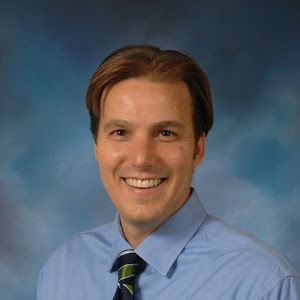
Effects of resistance exercise training on cardiac, metabolic, and muscle function and quality of life in Barth syndrome: Part II
W. Todd Cade, PT, PhD, Associate Professor, Washington University School of Medicine, St. Louis, MO
Award—US $45,313 plus $13,500 for travel expenses over 1-year period
*Funding for this award was provided by the Will McCurdy Fund for the Advancement of Therapies for Barth Syndrome
Abstract:
This is a proposal for the expansion (i.e. to study an additional 3 participants and 3 controls) of a previously awarded BSF grant. However, as an effort to improve the effectiveness of the resistance exercise training (RET), we have also added a nutritional component (diet standardization and monitoring, protein supplementation) to the intervention, and a measure of daily physical activity (actigraphy) to the outcome measures. Barth syndrome (BTHS) is an X-linked disorder characterized by severe mitochondrial dysfunction, cardiomyopathy, skeletal muscle weakness and exercise/activity intolerance. It is critical to identify and establish safe and effective means of improving fatigue, activity tolerance and quality of life in individuals with BTHS as educational, social and employment engagement is frequently compromised. Preliminary evidence from our group has demonstrated that a 12-week endurance (i.e. aerobic) exercise training program only modestly (~5%) increases exercise tolerance in participants with BTHS (data unpublished, manuscript in preparation) where other non-BTHS cardiomyopathies fare better with aerobic training (~15-25%). The blunted effect of endurance exercise training in BTHS may be due to the inherent pathogenesis of BTHS: genetic mitochondrial dysfunction in type I (oxidative>glycolytic capacity) muscle fibers. Endurance exercise training typically results in increased mitochondrial density and enzyme function (primarily in type I muscle fibers) in other populations; however, in BTHS, due to maternally inherited mitochondrial dysfunction, endurance exercise training might result in the generation of more impaired mitochondria thus limiting any beneficial effect of endurance training on exercise tolerance. Thus, it might be more beneficial to target type II (glycolytic>oxidative capacity) muscle fibers with exercise training when attempting to increase exercise tolerance and quality of life in BTHS. In our first BSF grant examining the effectiveness of RET in BTHS, data from 3 participants (i.e. Part I of the study) showed that RET clearly improves muscular strength but the positive effect on exercise/activity tolerance, muscle mass and quality of life appears to be modest. We believe that that limited effect of RET on exercise tolerance and muscle mass in the first 3 participants was due to a diet insufficient to promote muscle protein synthesis and muscle mass in the participants. Therefore, the overall objective of the proposal is to expand and improve data collection on the following hypothesis: Supervised RET (3x/wk, 45-60 min, 12 wks) with diet standardization (meeting at least minimum RDA recommendations for adolescents/young adults- 52-56 g protein/day) and protein supplementation (whey protein isolate, 42 g/day, Unjury Medical Quality Protein, Reston, VA ) will increase exercise/activity tolerance, left ventricular function, muscle strength and mass, whole-body protein metabolism and quality of life, and will be found safe in adolescents and young adults with BTHS. We aim to address these hypotheses through a 3 month supervised RET program in an additional 3 participants (n=3) with BTHS (ages 15-35 years) and 3 controls (total n=6). Supervised RET programs will be uniformly designed, but individualized and performed at a physical therapy or cardiac rehabilitation facility near the participant’s home. Protein supplementation (whey protein isolate, 42 g/day) will be ingested by the participants in conjunction with the RET program. Nutritional status will be evaluated at baseline, mid-training (6-weeks) and post-training through plasma levels of pre- albumin and amino acid profile. Left ventricular function will be examined using 2-D, Doppler and tissue Doppler echocardiography, skeletal muscle strength will be measured using isotonic and isokinetic dynamometry, body composition using dual energy x-ray absorptiometry, exercise/activity tolerance will be measured using graded exercise testing and actigraphy, whole-body protein metabolism by stable-isotope tracer methodology and mass spectrometry, and quality of life will be measured by the Minnesota Living with Heart Failure Questionnaire. Establishing the safety and efficacy of RET in BTHS could lead to clinical recommendations of regular RET instead of or in combination with endurance exercise training for the standard of care treatment of individuals with BTHS.
Associated Publications to Date:
Cade WT, Bohnert KL, Reeds DN, Peterson LR, Bittel AJ, Bashir A, Byrne BJ, Taylor CL. Peak oxygen uptake (VO2peak) across childhood, adolescence and young adulthood in Barth syndrome: Data from cross-sectional and longitudinal studies. PLoS One. 2018 May 24;13(5):e0197776. doi: 10.1371/journal.pone.0197776. eCollection 2018 (PubMed - Open Access)*▼
Bittel AJ, Bohnert KL, Reeds DN, Peterson LR, de Las Fuentes L, Corti M, Taylor CL, Byrne BJ, Cade TW. Reduced muscle strength in Barth syndrome may be improved by resistance exercise training: A pilot study. JIMD Rep. 2018 Apr 14. doi: 10.1007/8904_2018_102. [Epub ahead of print] PubMed Abstract)*▼
Cade WT, Reeds DN, Peterson LR, Bohnert KL, Tinius RA, Benni PB, Byrne BJ, Taylor CL.Endurance exercise training in young adults with Barth syndrome: A pilot study. JIMD Rep. 2016 Jun 11. [Epub ahead of print] (PubMed Abstract)
Associated Presentations to Date:
Keystone Symposia on Molecular and Cellular Biology
Rare and Undiagnosed Diseases: Discovery and Models of Precision Therapy (C2)
Scientific Organizers: William A. Gahl and Christoph Klein
March 5—8, 2017
Fairmont Copley Plaza, Boston, Massachusetts
American Society of Gene & Cell Therapy
May 10-13, 2017
Marriott Wardman Park Hotel, Washington, DC
Development of a Gene Therapy Program for Barth Syndrome ~ Pacak CA, Suzuki-Hatano S, Bohnert KL, Reeds DN, Peterson LR, de las Fuentes L, Byrne BJ, Cade WT.
BSF 2016 Conference
July 21, 2016 ~ Clearwater Beach, FL
Update on Exercise and Substrate Metabolism Studies in Barth Syndrome
BSF 2016 Conference
July 22, 2016 ~ Clearwater Beach, FL
Participation in Clinical Research: Lessons Learned in St. Louis
BSF 2014 Conference
June 26, 2014 ~ Clearwater Beach, FL
Exercise and Substrate Metabolism Studies in Barth Syndrome: An Update




